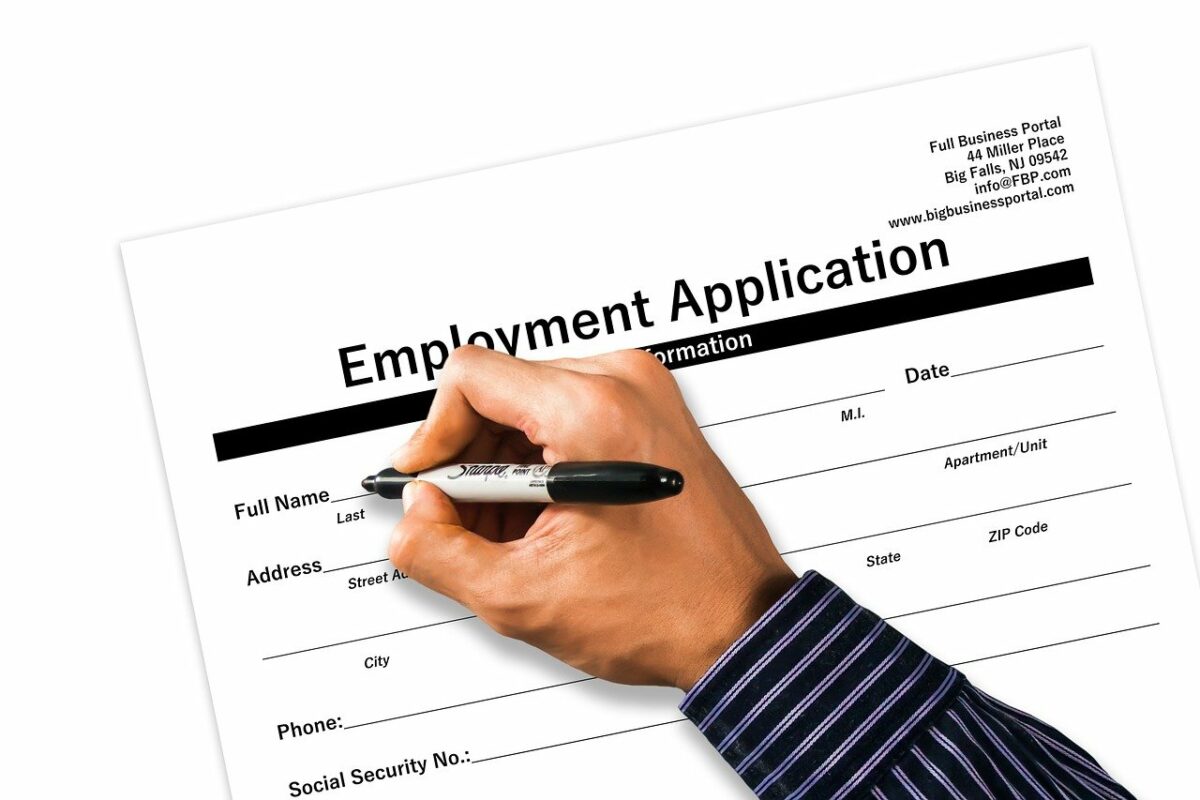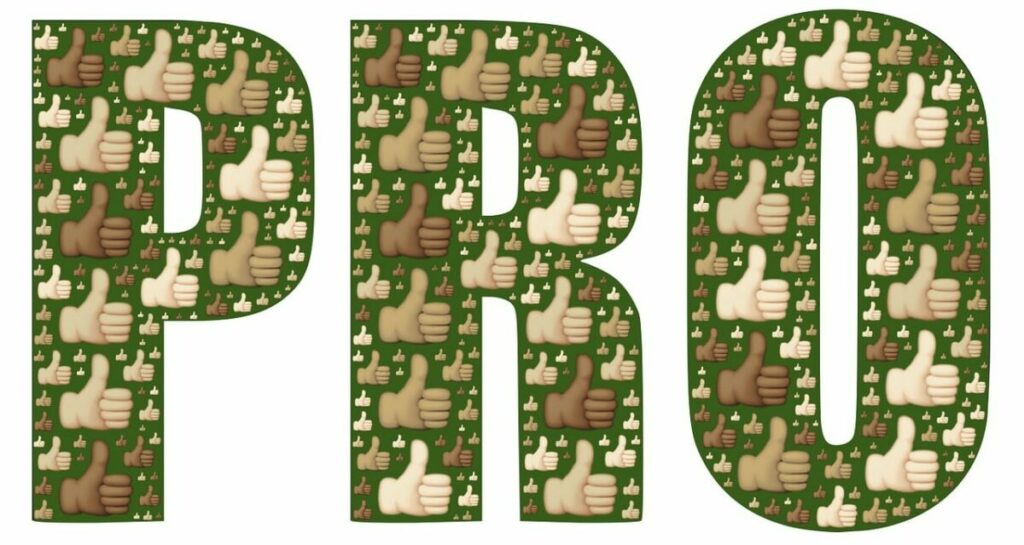What Work Experience To Ask For In A Job Description

Crafting an effective job description is a crucial step in the hiring process. It is the foundation for attracting the right candidates, setting clear expectations, and ensuring a smooth recruitment journey. Our free UK job description library, containing descriptions for thousands of roles, is an invaluable resource for business owners, employers, and hiring staff.
Our blog will focus on the importance of work experience requirements within job descriptions. We will explore how specifying job knowledge and relevant experience can help you identify the most suitable candidates, streamline your hiring process, and ultimately contribute to the success of your organisation. Whether you’re looking to fill technical positions, creative roles, or entry-level jobs, understanding the nuances of work experience requirements will enhance your recruitment strategy. Our guide is tailored to help business owners, employers, and hiring staff make informed decisions when drafting job descriptions and job adverts.
Highlights And Key Takeaways:
- 87% of executives, 81% of supervisors, and 90% of HR professionals acknowledge the value that experienced candidates bring to the workplace.
- However, specifying years of work experience in a job description has limited validity as a predictor of job performance.
- We include wording examples you can use in your job descriptions asking for work experience or alternatives to work experience.
Quick Links:
- The Importance Of Work Experience In Job Descriptions
- Pros Of Asking For Years Of Work Experience
- Cons Of Asking For Years Of Work Experience
- Essential Vs. Non-Essential Work Experience For Different Roles
- Examples Of Asking For Work Experience For Different Jobs
- Alternatives To Work Experience Requirements
- Other Relevant Considerations When Setting Hiring Criteria
- Hiring Resources For Employers And Hiring Managers
- Work Experience In Job Descriptions FAQs
The Importance Of Work Experience In Job Descriptions
Including work experience in job descriptions is a standard practice for several compelling reasons. Primarily, it helps ensure that candidates possess the specific skills and job knowledge required to perform effectively. By specifying a minimum number of years of experience, employers can filter out those needing more familiarity with the industry or role, focusing on applicants more likely to meet the job requirements.
Work experience also plays a critical role in reducing training time and accelerating onboarding. Candidates who previously held similar positions are often more adept at quickly adapting to new environments and responsibilities. This means they can contribute more immediately, reducing the initial investment in training and allowing them to become productive team members faster.
Furthermore, including work experience in job descriptions increases the likelihood of hiring competent employees. Individuals with relevant experience bring a proven track record of their capabilities, making it easier for employers to assess their potential performance. This aspect is particularly vital for roles requiring specific skills that are not easily taught or quickly acquired.
For more insights on this topic, our blog What Skills to Include in a Job Description provides valuable guidance on balancing the requirement for work experience with identifying essential skills and knowledge required for the role. By carefully considering these factors, employers can create more effective job descriptions that attract the right talent and support the success of their hiring strategies.
Pros Of Asking For Years Of Work Experience

Including a specified number of years of work experience in job descriptions offers several significant advantages. One of the primary benefits is that it measures a candidate’s exposure to relevant tasks, job responsibilities, and job duties. This helps employers ensure that applicants have practical experience performing the core functions (job duties and job responsibilities) of the role. For more detailed insights, refer to our blogs What Are Job Duties? and What Are Job Responsibilities?
Additionally, requiring a minimum number of years of work experience helps gauge the depth of a candidate’s expertise. It indicates that the candidate has had ample time to develop and refine their skills within their field. This accumulated experience can be crucial in roles that demand high proficiency and specialised knowledge.
“Requiring a minimum number of years of work experience can be crucial in roles that demand high proficiency and specialised knowledge.”
Another advantage is that it can demonstrate a candidate’s reliability and stability in their career. Individuals with long-term employment in relevant positions are often perceived as more dependable and committed. This stability can be particularly valuable in fostering a consistent and reliable workforce, providing employers with a sense of security in their team.
The findings from SHRM research are a significant endorsement for including work experience in job descriptions. The research highlights that relevant job experience is the most important factor considered by recruiters. Specifically, 87% of executives, 81% of supervisors, and 90% of HR professionals acknowledge the value that experienced candidates bring to the workplace. These statistics underscore the importance of work experience in ensuring candidates are well-prepared to meet the demands of the job and contribute effectively from the outset, providing employers with a solid foundation for their hiring strategies.
By specifying years of work experience, employers can attract candidates who are skilled and experienced in handling the responsibilities and duties that the role entails, thereby enhancing the overall efficiency and effectiveness of the hiring process.
Cons Of Asking For Years Of Work Experience

While specifying years of work experience in a job description can offer benefits, this approach has notable drawbacks. Frank L. Schmidt’s research indicates that work experience has limited validity as a predictor of job performance. The study found that experience accounts for only a small percentage of the variance in job performance, suggesting that relying heavily on this criterion may not effectively predict a candidate’s success.
One significant disadvantage of specifying years of work experience is the potential exclusion of capable job seekers who lack formal experience but possess the necessary skills. These individuals may have developed relevant competencies through alternative paths, such as education, volunteer work, or personal projects. Our blog How to Recruit People with Transferable Skills discusses strategies for identifying and valuing such candidates, ensuring you don’t miss out on talented individuals who can contribute effectively despite not meeting the traditional experience requirements.
“Experience accounts for only a small percentage of the variance in job performance, suggesting that relying heavily on this criterion may not effectively predict a candidate’s success.”
Furthermore, focusing on years of work experience can inadvertently contribute to age discrimination and a lack of diversity in the workplace. This criterion may favour older applicants over younger ones, regardless of the actual job knowledge and skills required. It can also discourage applications from diverse backgrounds who may have taken non-traditional career paths. To counteract this, explore our blog How Do You Write an Inclusive Job Description? which offers guidance on creating job descriptions that are welcoming to a broader applicant pool and promote diversity and inclusion.
Additionally, requiring specific years of experience can narrow the applicant pool, limiting the number of potential candidates. A person specification that rigidly describes the need for a set number of years of experience may discourage qualified applicants from applying, thereby reducing the diversity and talent of your candidate selection.
By carefully considering these cons, employers can create more inclusive and effective job descriptions that attract a wider range of qualified applicants, enhancing the overall quality and diversity of their workforce.
Essential Vs. Non-Essential Work Experience For Different Roles
Understanding the distinction between essential and non-essential work experience is a powerful tool that can significantly enhance the effectiveness of your hiring process. By grasping this concept, you can empower yourself to make more informed decisions, tailored to the specific requirements of each job title. Here’s a breakdown of essential and non-essential work experience for different roles:
Essential:
- Technical roles (e.g., software developers, engineers): These job titles require specific technical skills and extensive industry knowledge. Candidates must demonstrate an ability to handle complex tasks and apply their expertise effectively. Our blog How to Recruit Candidates for Technical Jobs provides further insights on identifying the right talent for these positions.
- Healthcare positions (e.g., nurses, doctors): Hands-on experience and familiarity with medical protocols are crucial. Years of practical experience develop the ability to perform under pressure and make informed decisions, making prior work in the field indispensable.
- Senior management roles: These positions carry a significant weight of responsibility. Leadership experience and strategic decision-making skills are not just vital but indispensable. The post holder for these roles must have a proven track record of managing teams, project management, driving business growth, and making high-stakes decisions. Developing such skills over time is critical to their success in these roles.
Non-Essential:
- Entry-level positions: For these job titles, willingness to learn and cultural fit are often more important than previous experience. Employers can focus on candidates’ potential and attitude, providing training and development opportunities to build their skills.
- Creative roles (e.g., graphic designers, writers): In these fields, a portfolio and demonstrated creativity can indicate a candidate’s ability more than years of experience. Employers should look at the quality and originality of past work to assess suitability.
- Customer service roles: These positions are not just about handling customer inquiries, they are about maintaining a positive attitude and effective communication. Interpersonal skills and attitude are not just important, they are critical. These key traits can be developed without extensive prior experience in similar positions.
Employers can create more targeted and inclusive job descriptions by distinguishing between essential and non-essential work experience based on the job title and its requirements. This approach attracts a wider range of candidates and ensures that the right skills and abilities are prioritised for each role.
Examples Of Asking For Work Experience For Different Jobs

Including specific work experience requirements in job descriptions can vary based on the role and unique needs. Here are four examples of how to ask for work experience for different jobs, each framed differently to provide a range of options:
Example 1: Forensic Psychologist
“We are seeking a Forensic Psychologist with a minimum of 5 years of experience in similar roles, particularly within the criminal justice system. Candidates should demonstrate expertise in psychological assessments and court testimony.”
Download our Forensic Psychologist job description example here.
Example 2: Building Inspector
“Applicants must have at least 3 years of professional experience in building inspection or related fields. Experience in conducting safety inspections and ensuring compliance with building codes is essential.”
Download our Building Inspector job description example here.
Example 3: Chief Technology Officer
“Candidates should have a robust background with at least 10 years of experience in IT leadership roles. Previous roles should include managing large-scale technology projects and strategic planning.”
Download our Chief Technology Officer job description example here.
Example 4: Finance Director
“We require a Finance Director with a proven track record of at least 8 years in senior financial management roles. Experience in budget planning, financial analysis, and compliance is critical.”
Download our Finance Director job description example here.
These examples provide varied ways to specify work experience requirements, helping you tailor your job descriptions to attract the most suitable candidates with the necessary background in similar roles.
Alternatives To Work Experience Requirements

When traditional work experience isn’t available, several effective alternatives to consider for evaluating candidates can help identify individuals with the necessary skills and qualities to excel in the role:
1. Skills Assessments
Practical tests can be used to directly evaluate candidates’ abilities. This method is especially useful for roles requiring specific technical skills or problem-solving capabilities.
Example wording for a job description: “Candidates must complete a skills assessment to demonstrate their problem-solving abilities and proficiency in relevant tasks.”
2. Portfolio Reviews
Reviewing a candidate’s past work for creative roles is an excellent way to gauge their capability and style. This method helps employers see the practical application of a candidate’s skills.
Example wording for a job description: “Applicants should submit a portfolio of their work. We will review portfolios to assess creativity, style, and a strong attention to detail.”
3. Internships and Apprenticeships
Offering internships or apprenticeships can provide candidates with hands-on experience while contributing to the business. This approach is ideal for roles where practical experience is a preferred qualification.
Example wording for a job description: “We offer internships and apprenticeships to help candidates gain valuable experience and develop their skills. This opportunity is a good fit for those looking to build a strong reputation in the industry.”
4. Education and Certifications
Relevant degrees or professional certifications can substitute for direct experience and demonstrate a candidate’s knowledge and readiness for the role. Our blog, Should I Ask For A Degree When Advertising A Job? provides further insights into this approach.
Example wording for a job description: “Preferred qualifications include a degree in marketing or a related field or certification from a recognised professional body. These credentials will be considered instead of direct experience.”
These alternatives help broaden the applicant pool and identify candidates who might not have traditional work experience but possess the skills and potential to excel. By focusing on practical evaluations, creative demonstrations, and formal qualifications, employers can find candidates who are a good fit for their team and capable of delivering excellent customer results.
Other Relevant Considerations When Setting Hiring Criteria
When establishing hiring criteria, it’s essential to consider factors beyond just work experience. Here are three key points to keep in mind:
1. Balancing the Need for Experience with the Potential for Learning and Growth
While experience can be valuable, it’s equally important to recognise candidates’ potential for learning and growth. Employees who demonstrate a strong ability to learn and adapt can often bring fresh perspectives and innovative ideas to your company. Training and development opportunities can help nurture this potential, leading to long-term benefits for the organisation.
2. Importance of Diversity and Inclusion in Hiring Practices
Diversity and inclusion are critical components of a successful hiring strategy. Inclusive hiring practices promote a diverse workforce and enhance creativity and problem-solving within teams. Using inclusive language in job descriptions can help attract a wider range of candidates. Our blog What Is The Impact Of Using Inclusive Language In Job Descriptions? discusses how inclusive language can make your company more appealing to diverse applicants, ultimately fostering a more dynamic and innovative workplace.
3. Strategies to Attract and Retain Talent Without Stringent Experience Requirements
To attract and retain top talent without imposing stringent experience requirements, consider the following strategies:
- Emphasise Skills Over Experience: Focus on the skills required for the job rather than the years of experience. This approach can help identify candidates who fit the role well, regardless of their previous job titles.
- Offer Training and Development: Providing robust training programs and continuous professional development opportunities can make your company more attractive to potential employees, showing that you are committed to their growth and career advancement.
- Create a Supportive Work Environment: A positive company culture that supports work-life balance, such as offering flexible working arrangements, shows you value employee well-being and can be a significant draw for candidates.
- Highlight Opportunities for Advancement: Communicate the potential career paths and advancement opportunities within your company. This can attract ambitious candidates who are looking for a company where they can grow and develop their careers.
By balancing the need for experience with the potential for growth, embracing diversity and inclusion, and implementing strategies to attract and retain talent, your company can build a strong, dynamic, and innovative workforce.
Hiring Resources For Employers And Hiring Managers
When hiring, having the right resources at your fingertips can make a significant difference in attracting and selecting the best candidates. Below are some essential resources to assist you in creating effective job descriptions and advertisements, along with a guide on thoughtful hiring practices.
- Job Description Library: Explore our extensive Job Description Library to find detailed descriptions for thousands of roles across various industries. Our library can help you tailor your job descriptions to meet your needs.
- Job Description Template: Utilise our Job Description Template to streamline the process of drafting your descriptions. This template provides a structured format to ensure you include all critical elements and present a comprehensive job outline.
- Job Advert Template: Craft compelling job advertisements with our Job Advert Template. This resource is designed to help you write engaging and effective job adverts that attract the right candidates.
- A Guide on How to Hire: Thoughtfully considering work experience requirements is crucial in the hiring process. While experience can be valuable, it’s also essential to balance this with the potential for learning and growth and the importance of diversity and inclusion. For more insights, refer to our guide, A Guide On How To Hire.
We encourage you to utilise the provided resources to create effective, inclusive, detailed, and tailored job descriptions to attract the best talent. You can build a dynamic and capable workforce by carefully considering the balance of experience, skills, and potential. Visit our website to access these hiring resources and enhance your hiring process.
Work Experience In Job Descriptions FAQs
Here we answer common Hiring Manager and business owner question on requesting previous experience in a job description:
Yes, including work experience requirements in a job description is highly advisable. It allows you to attract candidates with the necessary skills and familiarity with the industry, reducing the time spent on training and ensuring they can hit the ground running. By specifying the type of experience required, you can filter out unsuitable applicants and focus on those more likely to contribute effectively from the outset.
The work experience you should request depends on the specific needs of the role and your business objectives. Generally, it would help to look for experience that aligns with the position’s key responsibilities, ensuring candidates have a proven track record in relevant tasks. Consider both the technical and soft skills critical for success in the role. For example, for a sales position, you prioritise experience in sales techniques, customer relationship management, and meeting sales targets. Additionally, industry-specific experience can be valuable, demonstrating a candidate’s familiarity with your sector’s challenges and opportunities.



